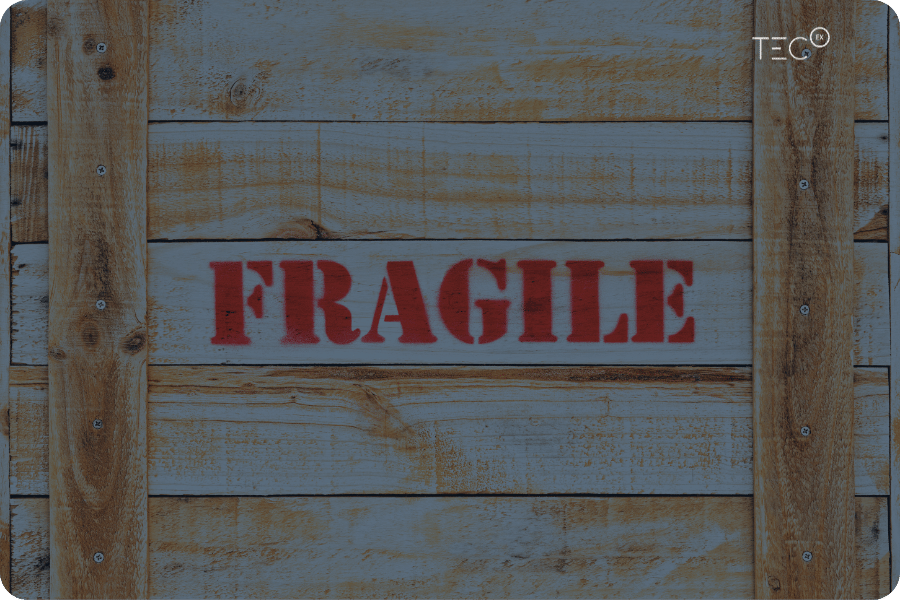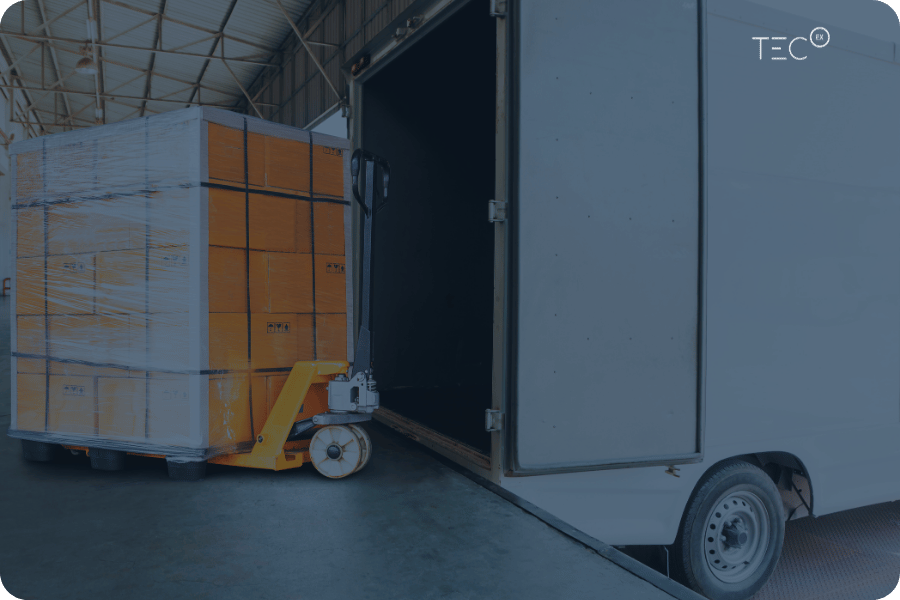When dealing with international logistics, shipping servers, especially high-value servers, can seem daunting. Whether you are relocating servers to a new data center or distributing them to multiple countries, careful planning and execution are essential.
We will walk you through best practices for shipping servers, ensuring compliance, and maintaining the integrity of your valuable equipment.
Why Proper Planning is Crucial for Shipping Servers
High-value servers are sensitive pieces of dual-use technology that can easily be damaged if not handled properly during transport. A significant investment for any organization, these servers are critical to operations, storing sensitive data, and running vital applications.
Improper shipping can lead to hardware failure, loss of data, and increased downtime, which translates to financial loss. Therefore, understanding the nuances of shipping servers is essential for maintaining your organization’s efficiency and reputation.

How to Ship Servers Internationally
Importance of Compliance and Documentation
Shipping servers internationally involves navigating various regulatory landscapes. Each country has its own import and export regulations, which can impact how your servers are shipped. Proper documentation is crucial to ensure smooth customs clearance and compliance with international laws.
Key documents typically include:
Commercial Invoices
Detailing the shipment’s value and contents.
Packing Lists
A comprehensive list of items included in the shipment.
Certificates of Origin
Sometimes required to prove where the product was manufactured.
Export Licenses
Necessary for certain types of technology or high-value items.
Because each country has its own import regulations and standards, it’s advisable to consult with logistics experts or import compliance specialists like TecEx to ensure you have all the necessary documentation before shipping.
Best Practices for Shipping Servers | Packing and Palletizing
Step-by-Step Packing Guide
Packing servers for shipping is a meticulous process that requires attention to detail. Follow these steps to ensure your servers are secure and protected during transit:
- Prepare the Server
- Use Anti-Static Materials
- Place in a Sturdy Box or Wooden Crate
- Add Cushioning
- Seal the Box

Palletization Techniques for Shipping Servers
Palletization is critical for transporting multiple servers efficiently. Here’s how to palletize effectively:
- Choose the Right Pallet
- Stacking Servers
- Wrap the Pallet
- Label the Pallet

![]()
Pallet Tip:
Even if you are shipping just one server, palletizing offers a level of protection from handlers trying to lift the server themselves in lieu of using a pallet jack.
Moving Servers from One Data Center to Another
When relocating servers between data centers, it’s essential to consider logistics and the potential impact on operations. Here are key considerations:

Planning the Route
Choose a route that minimizes potential delays and risks. Consider traffic patterns, road conditions, and any necessary permits. For example, shipments bound for Hong Kong require a HKTID permit.

Minimizing Downtime
Schedule the move during off-peak hours or weekends to minimize disruption to business operations.

Securing Transport
Ensure that your freight provider is both experienced and equipped to handle high-value electronics. This includes climate control, security measures, and adequate space.

Communication
Keep all stakeholders informed throughout the process. This includes anyone involved in the logistics and compliance side of the shipment.
Shipping Servers Internationally | A Closer Look at Import Compliance
When shipping servers internationally, one effective strategy is to purchase the servers locally and then transport them to the destination country. While this approach seems the most convenient, it’s often underutilized due to the challenges associated with international customs clearance.
Shipping servers and other high-value IT equipment involves navigating a complex landscape of regulations and compliance requirements. These laws can vary significantly based on factors such as the type of servers being shipped, the software they contain, and the specific countries involved in the transaction. Unlike domestic shipping, international shipments require careful consideration of numerous factors to ensure smooth customs clearance.
With years of experience in dealing with compliance issues in over 200 destinations, TecEx can serve as your dedicated IOR, facilitating the import process while allowing you to maintain control over your shipments and business decisions. Our services include:

Handling Duties and Taxes
Accurate classification of your servers under the appropriate Harmonized System (HS) codes is essential. Each code carries specific duties and taxes that vary based on destination. Importantly, local customs may value your equipment based on its Manufacturer’s Suggested Retail Price (MSRP) rather than your purchase price. We ensure precise HS code assignment, helping you pay only the necessary duties and taxes.

Navigating International Shipping Terminology
International shipping involves a unique set of jargon known as International Commercial Terms (Incoterms). Understanding these terms is essential for ensuring compliance and smooth transactions.

Packing for Compliance
Different countries have specific packaging requirements for servers, including permissible materials. Even if your documentation is accurate and the servers meet compliance standards, improper packing can lead to customs delays. Ensuring that your servers are securely packaged for international transport is vital, as these shipments often cover longer distances and face more rigorous handling than domestic ones.

Providing Insurance Certificates
Always be sure to cover your servers for their full value and not their weight measurements for the duration of their entire shipping journey. Servers are relatively thin and can weigh a couple hundred pounds. However, their price tag can be well into the 6-figure range.
Depending on the nature of your shipment, you may be required to present proof of adequate insurance coverage to customs officials. This adds another layer of complexity, necessitating careful preparation and documentation. Our liability cover puts your mind at ease, with full coverage on new, RMA, second-hand and refurbished goods.

Managing Customs Hold-Ups
Finally, it’s crucial to have a plan for addressing potential customs issues. If questions or complications arise during the clearance process, effective communication with customs is essential. Being able to quickly provide any requested information or documentation can make a significant difference in avoiding delays.
Shipping Servers Seamlessly
At TecEx, we specialize in import compliance and DDP logistics solutions for high-value technology shipments. With years of experience shipping servers internationally and between data centers, we can help you navigate the complexities of international shipping, ensure compliance with regulations, and safeguard your equipment. From expert import solutions to efficient customs clearance, our team is dedicated to providing a seamless shipping experience.
Contact us today to learn more about how we can assist with your server shipping needs!



